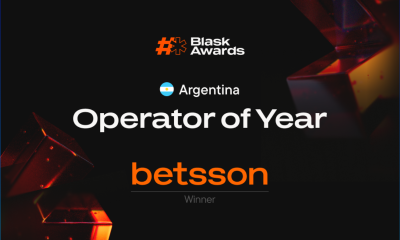Latest News
2022 Football World Cup and sports betting: the ANJ presents the results of the competition
As expected, the Football World Cup was a highlight in the 2022 sports betting calendar, with online stakes breaking records. This economic result confirms the real craze for sports betting, which is, for many gamblers, an inseparable practice from football. As far as advertising is concerned, the content has become more normalized, and the commitments made by the operators to reduce advertising pressure have generally been respected. Nevertheless, the massive recourse to programme sponsorship and influence are points of vigilance for the regulator and answers will have to be provided in the near future.
Economic results: a major World Cup, but in the context of a global slowdown in the growth of the online sports betting market in 2022
The Football World Cup has recorded several records for online sports betting:
– €597 million in stakes and €70 million in GGPs (Gross Gaming Revenue), a record performance for a competition of this scale. Stakes were 56% higher than for the 2018 World Cup and 37% higher than for the Euro, which was held in 2021 but featured fewer matches. The results recorded in FDJ sales outlets will be communicated in mid-February. Nevertheless, it can be estimated that the total amount of bets recorded online and in sales outlets could exceed €900 million.
– With €51 million in stakes placed, the France / Argentina final is the match that holds the record for bets, dethroning the 2018 France / Croatia final (€38million).
However, this result should be seen in a more global context of slowing down the growth of online sports betting in 2022. In fact, in 2022, the online sports betting segment saw a 2.5% growth in GGR, compared to 44% in 2021 and 7% in 2020, marked by Covid. Stakes on the 2022 World Cup represent 7.2% of total stakes placed in 2022, compared with 10% in 2018. Two explanations for this drop in the weight of stakes associated with the World Cup can be put forward: on the one hand, the number of players who opened an account during the World Cup was greater in 2018 than in 2022. Their weight in the total number of player accounts opened has therefore decreased. On the other hand, it seems that players who were already active before the World Cup have spread their bets more throughout the year and are diversifying them to other football competitions and sports, such as basketball.
Profile of players and betting practices: more women and 18-24 year olds among new bettors
– 177,000 new gamblers created an account during the competition. This is less than in 2018 (232,000 accounts opened);
– A more feminine pool of players: twice as many women aged 18-24 were recruited than during a normal period of activity, i.e. outside a major sporting and popular event;
– 54 million bets were placed, more than double the number in 2018;
– While players bet more than in 2018, the amount of unit bets was €11, which is slightly lower than the amount of unit bets seen in 2018;
– The average stake placed during the entire competition remained stable compared to that observed during the 2018 World Cup, at €234;
– 2.6 million player accounts placed a bet during the competition (players have an average of 1.2 accounts). This represents 2.2 million unique players;
– 70% of these accounts were negative, 23% were positive and 6% were balanced; only 1% won more than 10 times their stake.
– The 18-24 year olds represent 53% of new players, which is higher than in a normal period of activity.
It is still too early to assess the effects of competition on loss of control and addiction. An ANJ/OFDT (Observatoire Français des Drogues et des Tendances Addictives) study project will make it possible to observe this phenomenon over the medium and long term on new and regular players.
Preventive campaigns
For the first time, several prevention campaigns were conducted by public institutions before and during a major sporting event. These three campaigns, launched by Santé publique France, the Seine-Saint-Denis General Council and the ANJ, raised awareness among the general public of the risks of problem gambling and excessive gambling, using different approaches. The ANJ campaign “T’as vu, t’as perdu” (You saw, you lost) was aimed at sports bettors by mobilising their media and their codes.
46% of French people said they had seen prevention campaigns during the World Cup and more than 7 out of 10 gamblers. 82% of them consider that these campaigns are useful and 47% think that there are not enough of them.
Assessment of the regulatory mechanism put in place for operators’ commercial communications: an action plan that has made it possible to change the tone and to contain advertising pressure
After noticing an unprecedented advertising pressure in favour of sports betting during the Euro football tournament in 2021, the ANJ launched an ambitious action plan to “de-intensify” the advertising pressure on all communication media (television, radio, billboards and digital) and to reinforce the protection of minors and at-risk audiences, particularly on digital levers.
This two-part plan included guidelines for advertising content and financial incentives on the one hand, and recommendations for reducing advertising pressure across all media channels and moderating bonus offers on the other, in order to better protect vulnerable audiences.
In order to demonstrate their willingness to apply the recommendations of the ANJ, all the actors of the ecosystem – advertising agencies, audiovisual professionals and gambling operators – signed in November 2022 four commitment charters to moderate advertising pressure and promote responsible commercial communications in television, radio, billboards and digital. The World Cup was the first major event to test the effectiveness of the commitments made.
- As regards the content of the advertisements, a change in tone was observed. There is less emphasis on external signs of wealth or false beliefs about the possibility of changing social status through sports betting and less blatant targeting of young people from working class neighbourhoods. According to a study carried out by Toluna – Harris Interactive for the ANJ, sports betting advertisements are considered as “slightly less disturbing and aggressive” than during Euro 2021;
- The commitments made in TV, radio and billboards were generally respected and made it possible to contain the pressure on traditional media;
- The pressure on the digital world seems to be slightly less important than during the Euro, but this point needs to be confirmed on the basis of the figures expected in February;
- The transparency of financial incentives (welcome and loyalty bonuses) has improved. In addition, the €100 limit on the welcome bonus recommended by the ANJ was generally applied by sports betting operators.
Lastly, the ANJ carried out an audit of the four main sports betting operators in order to ensure compliance with the commitments they have made. The checks are in progress.
A need to go further
There are still points of vigilance insofar as the ANJ has noted that some operators are using circumvention strategies with massive recourse to sponsorship of sports programmes and influence, which are particularly invasive and popular with young people. During the World Cup, around 100 influencers were mobilised to promote sports betting, mainly on Instagram, YouTube and Twitter. 80% of the influencers’ audience is under 34 years old and 50% under 25 years old.
The working group on sponsorship initiated by the ANJ in July 2022 will deliver its conclusions and proposals in March; they will focus in particular on jersey partnerships, competition naming, but also programme sponsorship on radio, television or streaming sites.
The ANJ is also actively participating in the various initiatives of the public authorities aiming to better regulate the use of influence.
Finally, although advertising pressure was contained during the World Cup, it remains at a high level, particularly on television, billboards and social networks. The study carried out by Toluna – Harris Interactive indicates that 49% of people who saw sports betting advertisements during the World Cup believe that “there are too many” (compared to 54% during the Euro). 88% of those who saw the ads said they saw them on TV and 54% on social networks, with the proportion rising quite logically to 79% among the under-35 years old.
The review by the ANJ Board in February 2023 of the promotional strategies of gambling operators aims to assess the regulation of advertising in 2022 and to provide new answers to the marketing ambitions of the operators, in particular concerning their important presence on social networks which are very popular with young people and excessive gamblers, the massive use of influence and sponsoring
For Isabelle Falque-Pierrotin, Chairwoman of the ANJ: “The regulatory mechanism set up by the ANJ in the run-up to the World Cup made it possible, with the tools at its disposal, to contain advertising pressure, and the operators generally played along. Nevertheless, this pressure remains strong and concerns the regulator, in a context where the latest OFDT studies show an increase in excessive gambling. The ANJ is therefore considering additional measures that it will propose to the public authorities in the coming months to strengthen the supervision of gambling advertising.”
Powered by WPeMatico
betting terminals
Meridianbet Completes Fairbet Acquisition, Expanding Malta Retail Gaming Network Under Golden Matrix Group

Meridianbet, a leading global sports betting and gaming operator and a subsidiary of Golden Matrix Group Inc. (NASDAQ: GMGI), has completed the acquisition of Fairbet Ltd., a licensed retail gaming operator in Malta.
The transaction significantly expands Meridianbet’s physical retail footprint in one of Europe’s most tightly regulated gaming jurisdictions.
Fairbet operates under Malta Gaming Authority (MGA) license B2C/195/2011, and the acquisition grants Meridianbet 100% ownership of Fairbet’s retail operations across Malta and Gozo, the archipelago’s second-largest island. The deal expands Meridianbet’s presence beyond its existing locations and further consolidates its position within the Maltese retail gaming market.
As part of the transaction, nine additional retail locations will be integrated into the Meridianbet network, increasing the company’s total number of storefronts in Malta to 20. The enlarged retail estate is expected to operate more than 60 sports betting terminals and over 120 slot machines, significantly boosting Meridianbet’s land-based gaming capacity.
The companies’ previous technology partnership will now transition into full operational integration, with Meridianbet assuming complete operational control of Fairbet’s retail network. All locations will be rebranded under the Meridianbet name, ensuring unified technology, compliance, and customer experience across the portfolio.
Malta’s retail gaming sector is governed by one of the most restrictive regulatory frameworks in Europe, with only three licensed operators permitted to operate retail betting locations: Meridianbet, Izibet (the National Lottery operator), and Fairbet. With Fairbet now wholly owned by Meridianbet, the company effectively controls two of the three retail gaming licenses in the jurisdiction.
The Malta Gaming Authority (MGA) enforces strict licensing criteria, substantial capital requirements, and rigorous compliance standards that create significant barriers to market entry. These conditions limit competition and create long-term scarcity value for licensed operators that meet the regulatory threshold.
“Completing the acquisition of Fairbet strengthens our position in a market where regulatory barriers create inherent scarcity value,” said Zoran Milosevic, CEO of Meridianbet. “This transaction allows us to expand our retail infrastructure in Malta, while our technology now supports the majority of licensed retail gaming in the country. It reflects our disciplined M&A strategy, targeting high-barrier markets where limited licensing creates durable competitive advantages.”
The Fairbet acquisition aligns with Meridianbet’s broader growth strategy, which combines organic expansion with selective mergers and acquisitions in jurisdictions where regulation encourages consolidation. Malta has been a core operational hub for Meridianbet since 2008, with the company ranking among the country’s originally licensed gaming operators during the early development of the MGA framework.
Malta’s gaming industry benefits from a regulatory regime widely regarded as one of Europe’s most credible. The MGA’s oversight framework emphasizes investor protection, technical compliance, and financial stability, positioning Malta-licensed operators for trust and recognition across international markets.
Meridianbet’s expanded retail footprint across Malta and Gozo enhances its ability to serve both local customers and the island nation’s strong tourism sector. According to Malta’s National Statistics Office, tourist arrivals exceeded three million visitors in 2024, reinforcing the strategic value of a broad, well-positioned retail gaming network
The post Meridianbet Completes Fairbet Acquisition, Expanding Malta Retail Gaming Network Under Golden Matrix Group appeared first on Eastern European Gaming | Global iGaming & Tech Intelligence Hub.
Atlaslive
Atlaslive Reaches Final Shortlist for Best Live Platform Provider at SiGMA Eurasia 2026

Atlaslive, a provider of B2B iGaming platform technology, has earned a place on the shortlist for the BEST LIVE PLATFORM PROVIDER 2026 category at the SiGMA Eurasia Awards 2026.
The SiGMA Eurasia Awards spotlight excellence across the iGaming, affiliate, and online entertainment industries, honoring companies and solutions that drive innovation, sustainable growth, and measurable impact. The shortlist is announced as part of the SiGMA Eurasia Summit, taking place February 9–11, 2026, at Dubai Festival City in the United Arab Emirates.
“Platform performance is measured in milliseconds, uptime, and player trust. Being shortlisted in this category reflects the technical discipline and delivery standards our teams bring to operators every day.”
—Anastasiia Poltavets, CMO at Atlaslive
Partners, supporters, and members of the community can participate in the awards process through public voting by submitting their support using the following form:
https://share.hsforms.com/11aCinm5wS92yCSiAtXDGUg3s9oo
Taking place during summit week, the awards ceremonies create a key moment for industry professionals to connect, share insights, and celebrate innovation at one of the year’s most prominent gaming events.
About Atlaslive
Atlaslive delivers flexible, scalable iGaming platform technology to operators in regulated markets. Focused on performance, reliability, and continuous product development, Atlaslive enables sportsbook and casino operations aligned with diverse business models.
This document is provided to you for your information and discussion only. This document was based on public sources of information and was created by the Atlaslive team for marketing usage. It is not a solicitation or an offer to buy or sell any gambling-related product. Nothing in this document constitutes legal or business development advice. This document has been prepared from sources Atlaslive believes to be reliable, but we do not guarantee its accuracy or completeness and do not accept liability for any loss arising from its use. Atlaslive reserves the right to remedy any errors that may be present in this document.
About Atlaslive
Atlaslive is a B2B software development company that specializes in creating a multifunctional and automated platform to optimize the workflow of sports betting and casino operators. Key components of the Atlaslive Platform include Sportsbook, Casino, Risk Management and Anti-Fraud Tools, CRM, Bonus Engine, Business Analytics, Payment Systems, and Retail Module. Follow the company on LinkedIn to stay updated with the latest news in iGaming technology.
The post Atlaslive Reaches Final Shortlist for Best Live Platform Provider at SiGMA Eurasia 2026 appeared first on Eastern European Gaming | Global iGaming & Tech Intelligence Hub.
Atlaslive
Atlaslive Reaches Final Shortlist for Best Live Platform Provider at SiGMA Eurasia 2026

Atlaslive, a provider of B2B iGaming platform technology, has earned a place on the shortlist for the BEST LIVE PLATFORM PROVIDER 2026 category at the SiGMA Eurasia Awards 2026.
The SiGMA Eurasia Awards spotlight excellence across the iGaming, affiliate, and online entertainment industries, honoring companies and solutions that drive innovation, sustainable growth, and measurable impact. The shortlist is announced as part of the SiGMA Eurasia Summit, taking place February 9–11, 2026, at Dubai Festival City in the United Arab Emirates.
“Platform performance is measured in milliseconds, uptime, and player trust. Being shortlisted in this category reflects the technical discipline and delivery standards our teams bring to operators every day.”
—Anastasiia Poltavets, CMO at Atlaslive
Partners, supporters, and members of the community can participate in the awards process through public voting by submitting their support using the following form:
https://share.hsforms.com/11aCinm5wS92yCSiAtXDGUg3s9oo
Taking place during summit week, the awards ceremonies create a key moment for industry professionals to connect, share insights, and celebrate innovation at one of the year’s most prominent gaming events.
About Atlaslive
Atlaslive delivers flexible, scalable iGaming platform technology to operators in regulated markets. Focused on performance, reliability, and continuous product development, Atlaslive enables sportsbook and casino operations aligned with diverse business models.
This document is provided to you for your information and discussion only. This document was based on public sources of information and was created by the Atlaslive team for marketing usage. It is not a solicitation or an offer to buy or sell any gambling-related product. Nothing in this document constitutes legal or business development advice. This document has been prepared from sources Atlaslive believes to be reliable, but we do not guarantee its accuracy or completeness and do not accept liability for any loss arising from its use. Atlaslive reserves the right to remedy any errors that may be present in this document.
About Atlaslive
Atlaslive is a B2B software development company that specializes in creating a multifunctional and automated platform to optimize the workflow of sports betting and casino operators. Key components of the Atlaslive Platform include Sportsbook, Casino, Risk Management and Anti-Fraud Tools, CRM, Bonus Engine, Business Analytics, Payment Systems, and Retail Module. Follow the company on LinkedIn to stay updated with the latest news in iGaming technology.
The post Atlaslive Reaches Final Shortlist for Best Live Platform Provider at SiGMA Eurasia 2026 appeared first on Americas iGaming & Sports Betting News.
-

 BetPlay7 days ago
BetPlay7 days agoBlask Awards 2025: Betano, Caliente, BetPlay, Betsson and others define Latin America’s iGaming landscape
-

 iGaming7 days ago
iGaming7 days agoMajestic Claws Hold & Hit leaps into Spinomenal’s slots portfolio
-

 Canada7 days ago
Canada7 days agoComeOn Launches New Marketing Campaign in Ontario
-

 DEGEN Studios7 days ago
DEGEN Studios7 days agoDEGEN Studios brings Wild West chaos to the reels with Sunset Showdown
-

 Latest News7 days ago
Latest News7 days agoThrillTech partners with Nordplay Group to launch ThrillPots across Nordic-facing casino brands
-

 bingo halls6 days ago
bingo halls6 days agoBingo Halls and Casinos in Colombia Increased Their Contributions to Healthcare System by 9.3% in 2025
-

 Brightstar Lottery PLC6 days ago
Brightstar Lottery PLC6 days agoBrightstar Lottery Delivers Industry-Leading Sales Force Automation Solution to Ontario Lottery and Gaming Corporation
-

 Compliance Updates5 days ago
Compliance Updates5 days agoFinland Govt Looks at Whether Scratchcards can be Gifted Again



















